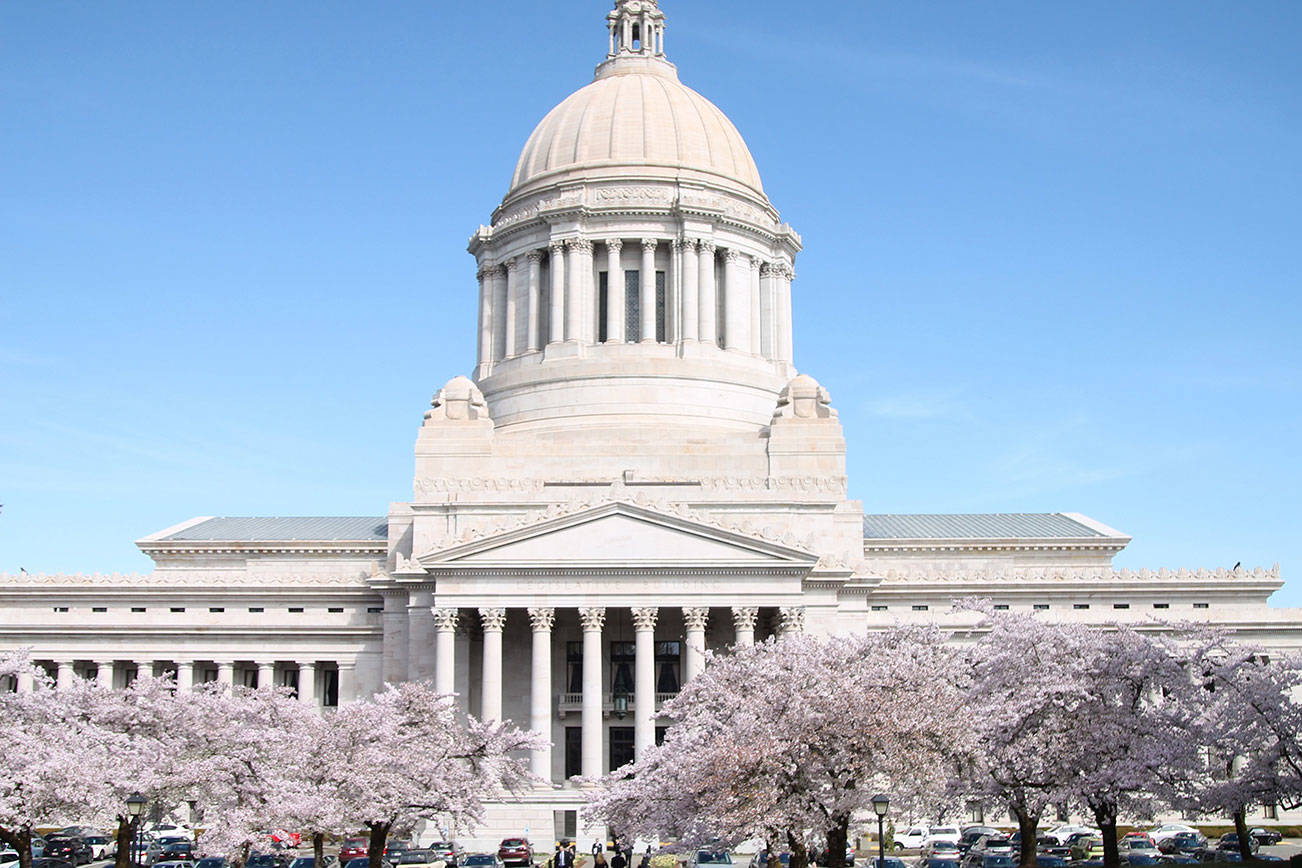The Washington state Legislature will try to address homelessness, the climate crisis and gun violence this session, but per usual the fight over funding will likely be front and center.
During the AP Legislative preview Jan. 9, state lawmakers and Gov. Jay Inslee walked through some of their priorities this session. One of the biggest items was a discussion about the governor’s proposed budget, which included $146 million in the 2019-2021 cycle. In total, it asked for more than $300 million over three years. Inslee proposed the state tap into its $2.5 billion emergency (“rainy day”) fund.
Democratic Senate Majority Leader Andy Billig (D-Spokane) said he likely didn’t have the votes to approve using the rainy day fund. Sen. Patty Kuderer (D-Bellevue) said the emergency fund was created for emergencies like the homelessness crisis.
Sen. Hans Zeiger (R-Puyallup) said the state should be looking to fund homelessness responses with its surplus instead. Other conservative lawmakers echoed similar ideas.
Inslee said using the fund makes sense because the level of homelessness is a crisis. It would also let the state take action without raising new revenue.
“I think this would be better than an additional tax increase,” Inslee said.
Inslee said he wasn’t as worried about where the money came from as long as it was approved.
There were also differing ideas on how best to address homelessness. Rep. Nicole Macri (D-Seattle) said having a stable place to live is what ends homelessness, and she supported building more housing and removing barriers that prevent people from getting housing. She said more services are needed.
“We know that building housing alone does not address homelessness,” Macri said.
Diversion programs and direct assistance to struggling people, as well as support for the disabled and elderly, were cited as examples of needed services. Kuderer pointed to other protections such as a proposed just-cause eviction bill she is sponsoring. In contrast, Zeiger said after passing stronger tenant protections last year, the state should wait to see how it plays out before introducing new laws.
Zeiger supported increasing diversion and assistance programs, which could help provide funds to people for rental assistance and other programs. He additionally supported creating city-based employment programs for homeless adults.
“For those who want to work but have found barriers to employment, we need to make opportunities available,” he said.
Rep. Morgan Irwin (R-Enumclaw) also works as a Seattle police officer. His approach to homelessness included enforcing laws. Politicians refuse to use the “stick behind the carrot” when addressing homelessness, he said. Republicans could additionally strap conditions onto the funding, such as barring it from being spent on safe injection sites, Irwin said. Irwin said safe injection sites would likely be hard to approve, and that restrictions on allowing sleeping near the entrances to government buildings could be another condition.
Macri said she thinks the safe injection site discussion is used as a distraction for other issues. Instead, the state should be looking at ways to provide long-term recovery and support for people.
On guns, Democrats seemed more cautious. House Speaker-designate Laurie Jinkins (D-Tacoma) said she would focus on making existing laws work better, like enforcing background checks. Billig and Jinkins both said they would need to caucus to discuss high-capacity magazine and assault weapons sales bans. Both bills have been requested by the Attorney General’s office.
Both Senate Republican leader Mark Schoesler (R-Ritzville) and House Republican Leader J.T. Wilcox (R-Yelm) said they would oppose new firearms restrictions. Schoesler said it wasn’t gun safety that Democrats wanted, but gun control and gun seizure. Wilcox said proposed firearm restrictions wouldn’t be supported by the state constitution.
When asked about climate change, neither Jinkins nor Billig could give specific policies they hope to see pass this session. Inslee said this session’s focus should be on tackling transportation sector emissions. Last session, the Legislature set a goal of converting the state’s energy grid to 100% carbon-free sources by 2045.
Talk to us
Please share your story tips by emailing editor@kentreporter.com.
To share your opinion for publication, submit a letter through our website https://www.kentreporter.com/submit-letter/. Include your name, address and daytime phone number. (We’ll only publish your name and hometown.) Please keep letters to 300 words or less.

